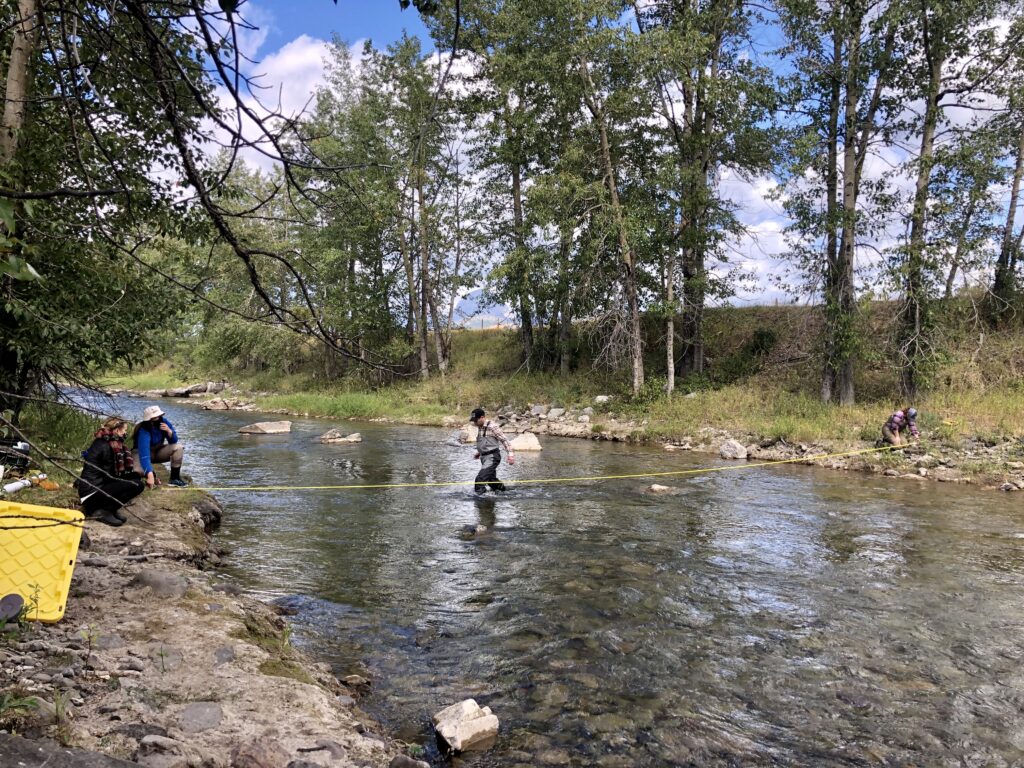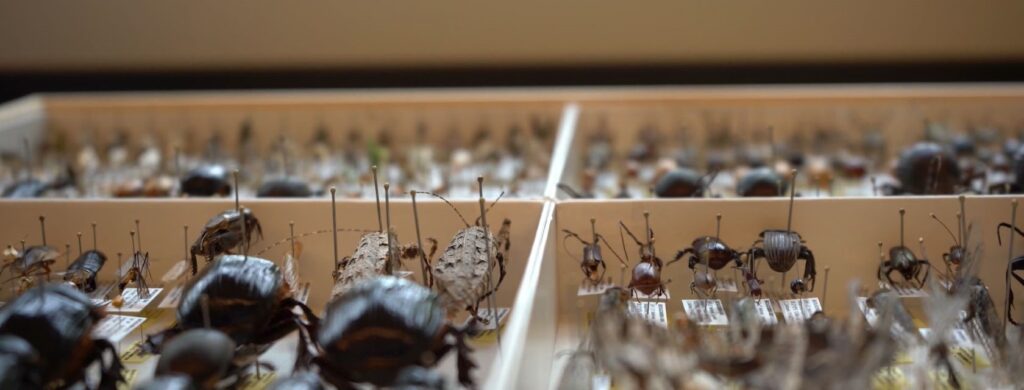From Bug-Shy to Bug-Savvy: Students Dive into Insect Research with FREED and CBG
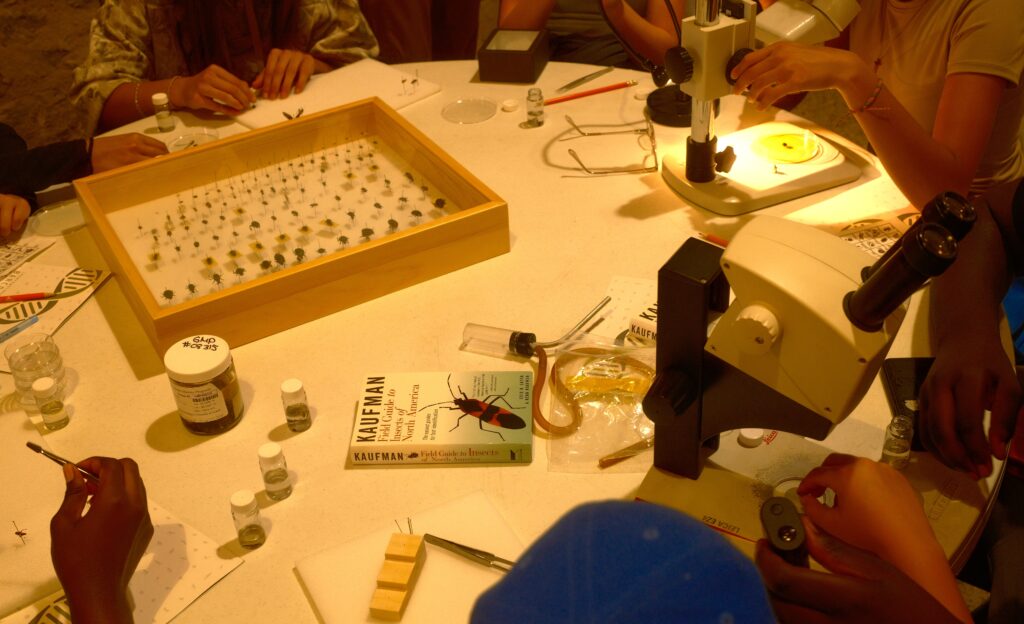
Field work can be transformative—offering hands-on skills, natural history knowledge, friendships, and career-building connections. Yet for Indigenous, Black, and Racialized students, access remains full of barriers.
- CBG Media & Communications
- August 14, 2025
On August 7, the Centre for Biodiversity Genomics (CBG) partnered with Field Research in Ecology and Evolution Diversified (FREED) to deliver a “Surveying Insect Biodiversity” workshop at the rare Charitable Research Reserve in Cambridge, Ontario. FREED is a grassroots initiative dedicated to expanding access to field research, naturalist experiences, community engagement, and career mentorship for Indigenous, Black, and Racialized students. We want to thank Alannah Grant and Jonathan Chu, FREED co-directors at the University of Guelph, for inviting the CBG to host this workshop.
This hands-on training was specifically designed to introduce key techniques used in entomological fieldwork and biodiversity research. We welcomed a total of 22 students—13 undergraduate students from FREED and 9 high school students from the rare Charitable Research Reserve Teen Eco Camp.
“It’s really exciting for students to experience both the field and lab sides of the work. They’re catching insects, processing and identifying them—getting the full spectrum through this workshop. Working alongside the Eco Campers is especially rewarding, because they’re not only learning, but also sharing and passing on their knowledge,” says Alannah Grant, FREED co-director at the University of Guelph and current PhD student.
CBG Staff Share Their Unique Paths into Biodiversity Research
The path to a career in research is rarely straightforward—often marked by setbacks, uncertainty, and valuable lessons along the way. CBG staff members Kate Perez and Renee Miskie joined as instructors for this one-day workshop. They shared personal stories about how they entered the field, the challenges they encountered, and what drives them to continue their work.
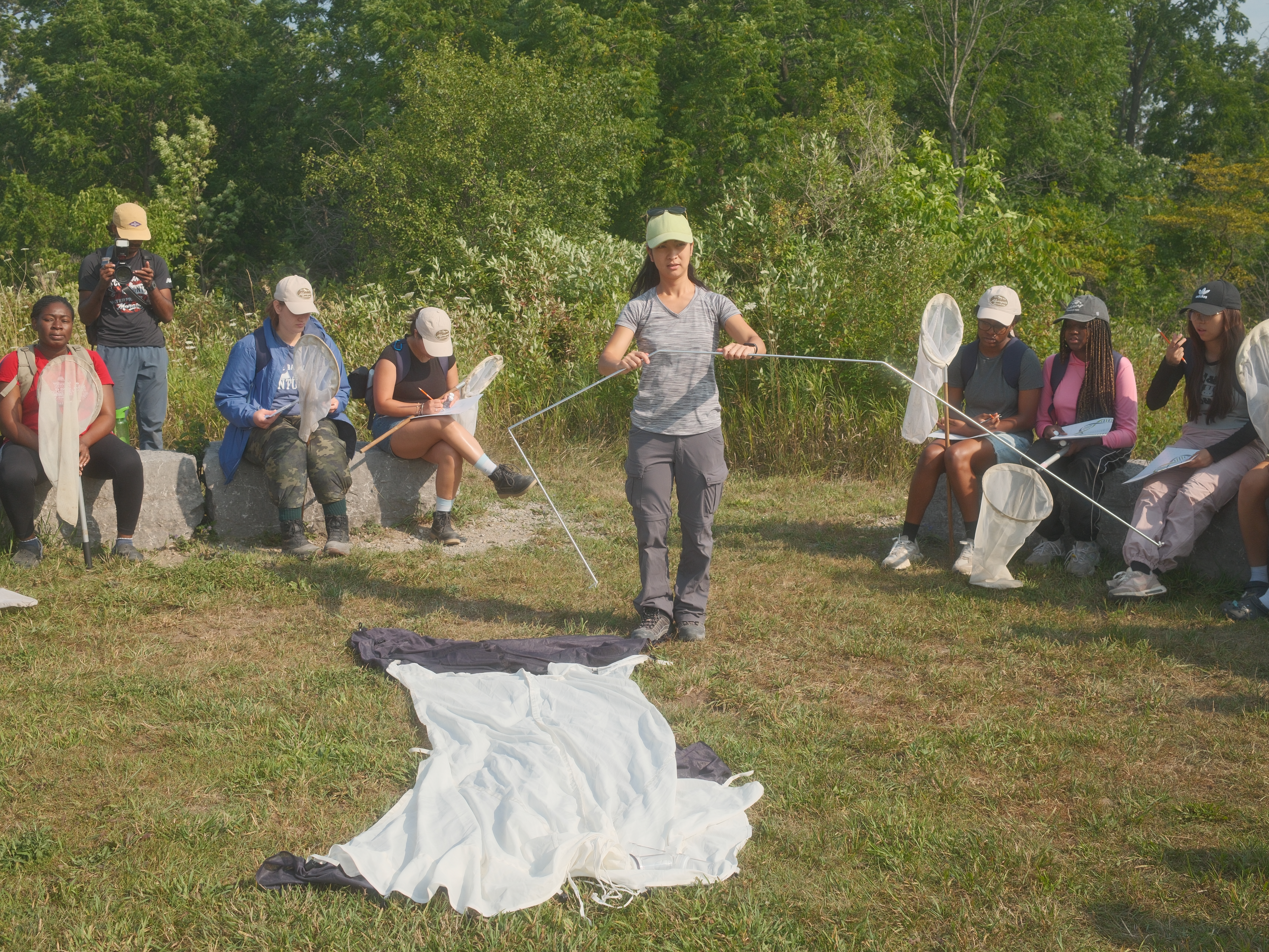
Kate Perez, CBG Research Liaison and Data Specialist, talked to students about her background in biology and her strong interest in fieldwork. Kate has coordinated biodiversity surveys across Canada and currently helps facilitate sample collection with partners internationally on CBG’s global projects.
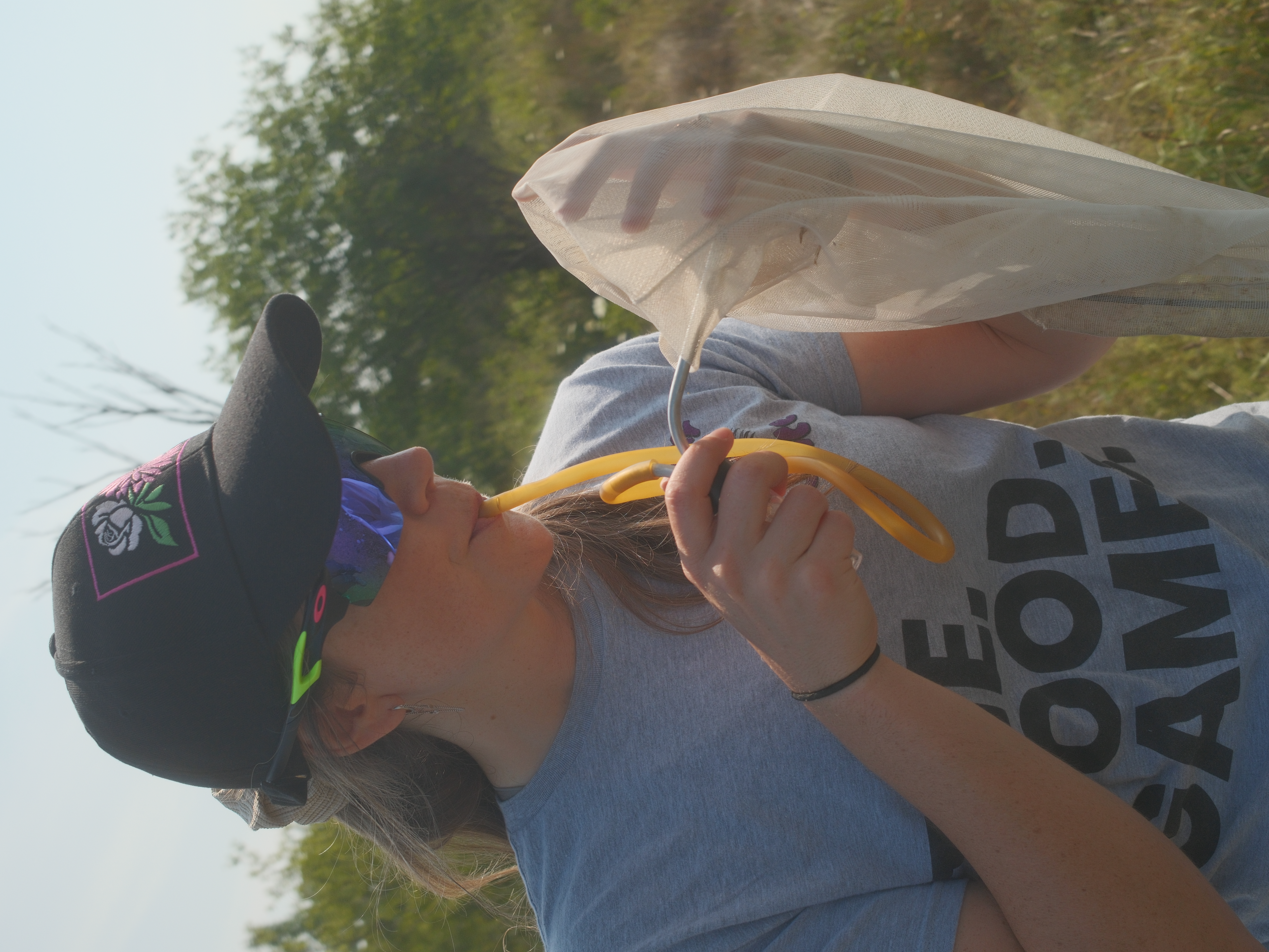
Additionally, Renee Miskie, CBG Taxonomy Lead, shared some experience from her 16-year background in biodiversity research. Renee first began her journey at CBG volunteering for the BIObus project, spending the summer of 2009 collecting insects across Eastern Canada. Renee has worked her way up from volunteer to lab technician to Taxonomy Lead in the Specimens Unit at CBG!
The instructors emphasized the value of natural history collections, where decades-old specimens continue to reveal new insights about the natural world. They reflected on the importance of DNA barcoding as a way to “read the books of life before we burn them,” helping to preserve and protect long-standing biodiversity.
Their key message to students: insects are all around us, offering endless opportunities for learning and discovery.
What Students Had to Say
At the end of the workshop, we invited participants to share what they enjoyed most about the day. We asked about their previous experiences with insects and how their feelings toward them may have changed.
FREED co-director Alannah Grant observed, “On the first day of the field excursion, jumping into tall grass would have been intimidating for the students. But by the third day, I saw them running in with nets, going straight for the bees and wasps, and confidently holding them in their hands.”
“Prior to this day, I was always the kind of person to be scared of bugs. But after today, getting to catch them with my friends, it was very exciting, and time flew by,” says Amadedon R.
“I saw a beautiful side of insects and how they keep our ecosystem alive. Now that I’ve pinned a couple under the light, I see how beautiful they are, so I have a warmer heart for them,” says Angelina R.
“Before this workshop, I had no experience with bugs. Maybe I would look at them, but I wouldn’t touch them. Today I came out of my comfort zone. Getting one-on-one experience with professional scientists, catching insects in the field, and getting to look at the bugs under a microscope was really cool. I really enjoyed it,” says Josephine N.

See the workshop in action—watch the video of our activities!
Thank you to all the students for their participation and to those who shared their experience with us! To learn more about this incredible grassroots organization, please visit FREED’s website: https://freedalgonquin.wordpress.com/
Instagram: @freed_fieldwork
If you wish to provide a charitable donation for future FREED workshops, please visit: https://bbis.alumni.uoguelph.ca/BBIS_Cannon/give/uofg?f=804270&amt=100

